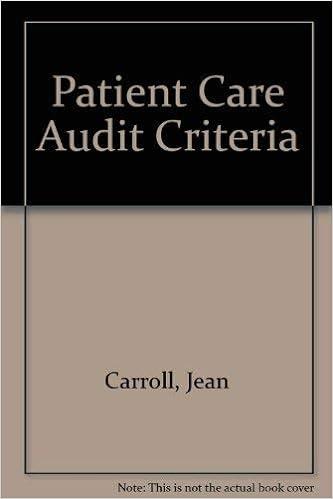The management of Zigby Manufacturing prepared the following estimated balance sheet for March, 2013: ZIGBY MANUFACTURING Estimated Balance Sheet March 31, 2013 Assets Cash $
The management of Zigby Manufacturing prepared the following estimated balance sheet for March, 2013:
| ZIGBY MANUFACTURING Estimated Balance Sheet March 31, 2013 | |||||
| Assets | |||||
| Cash | $ | 59,000 | |||
| Accounts receivable | 487,500 | ||||
| Raw materials inventory | 93,010 | ||||
| Finished goods inventory | 433,000 | ||||
| Total current assets | 1,072,510 | ||||
| Equipment, gross | 638,000 | ||||
| Accumulated depreciation | (169,000) | ||||
| Equipment, net | 469,000 | ||||
| Total assets | $ | 1,541,510 | |||
| Liabilities and Equity | |||||
| Accounts payable | 215,410 | ||||
| Short-term notes payable | 31,000 | ||||
| Total current liabilities | $ | 246,410 | |||
| Long-term note payable | 530,000 | ||||
| Total liabilities | 776,410 | ||||
| Common stock | 354,000 | ||||
| Retained earnings | 411,100 | ||||
| Total stockholders equity | 765,100 | ||||
| Total liabilities and equity | $ | 1,541,510 | |||
| To prepare a master budget for April, May, and June of 2013, management gathers the following information. |
| a. | Sales for March total 25,000 units. Forecasted sales in units are as follows: April, 25,000; May, 17,000; June, 22,400; July, 25,000. Sales of 259,000 units are forecasted for the entire year. The products selling price is $26.00 per unit and its total product cost is $21.65 per unit. |
| b. | Company policy calls for a given months ending raw materials inventory to equal 50% of the next months materials requirements. The March 31 raw materials inventory is 4,650 units, which complies with the policy. The expected June 30 ending raw materials inventory is 5,900 units. Raw materials cost $20 per unit. Each finished unit requires 0.50 units of raw materials. |
| c. | Company policy calls for a given months ending finished goods inventory to equal 80% of the next months expected unit sales. The March 31 finished goods inventory is 20,000 units, which complies with the policy |
| d. | Each finished unit requires 0.50 hours of direct labor at a rate of $15 per hour. |
| e. | Overhead is allocated based on direct labor hours. The predetermined variable overhead rate is $4.60 per direct labor hour. Depreciation of $39,710 per month is treated as fixed factory overhead. |
| f. | Sales representatives commissions are 5% of sales and are paid in the month of the sales. The sales managers monthly salary is $4,900 per month. |
| g. | Monthly general and administrative expenses include $34,000 administrative salaries and 0.8% monthly interest on the long-term note payable. |
| h. | The company expects 25% of sales to be for cash and the remaining 75% on credit. Receivables are collected in full in the month following the sale (none is collected in the month of the sale). |
| i. | All raw materials purchases are on credit, and no payables arise from any other transactions. One months raw materials purchases are fully paid in the next month. |
| J. | The minimum ending cash balance for all months is $98,000. If necessary, the company borrows enough cash using a short-term note to reach the minimum. Short-term notes require an interest payment of 1% at each month-end (before any repayment). If the ending cash balance exceeds the minimum, the excess will be applied to repaying the short-term notes payable balance. |
| K. | Dividends of $29,000 are to be declared and paid in May. |
| l. | No cash payments for income taxes are to be made during the second calendar quarter. Income tax will be assessed at 40% in the quarter and paid in the third calendar quarter. |
| m. | Equipment purchases of $149,000 are budgeted for the last day of June. |
| Required: | ||
| Prepare the following budgets and other financial information as required. All budgets and other financial information should be prepared for the second calendar quarter, except as otherwise noted below. Round calculations up to the nearest whole dollar, except for the amount of cash sales, which should be rounded down to the nearest whole dollar: 1. Sales budgets. (Round budgeted unit price answer to 2 decimal places.) 2. Production budget. 3. Raw materials budget. (Round Materials requirements per unit answers to 2 decimal places.) 4. Direct labor budget. (Round Labor requirements per unit answers to 2 decimal places.)
|
Step by Step Solution
There are 3 Steps involved in it
Step: 1

See step-by-step solutions with expert insights and AI powered tools for academic success
Step: 2

Step: 3

Ace Your Homework with AI
Get the answers you need in no time with our AI-driven, step-by-step assistance
Get Started


